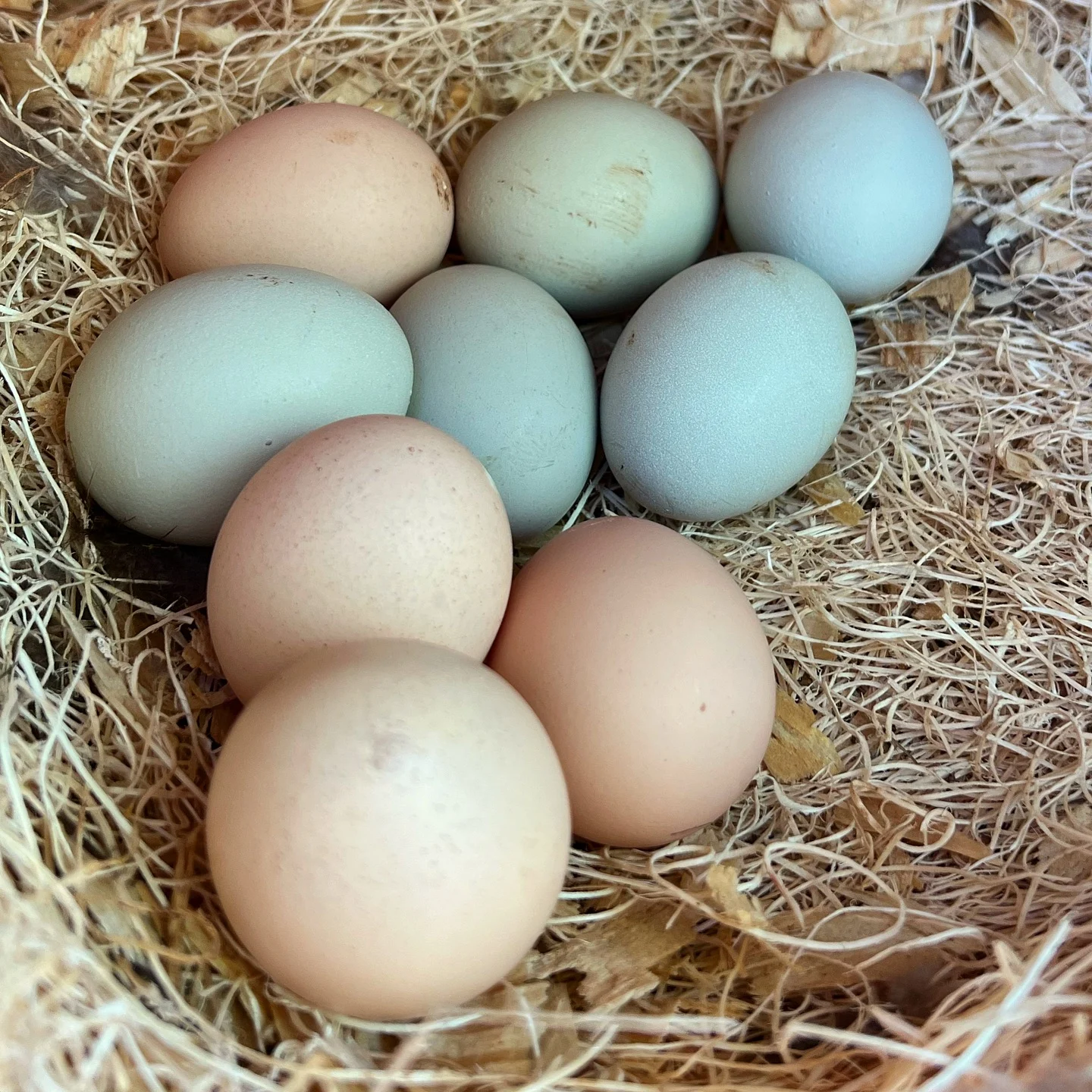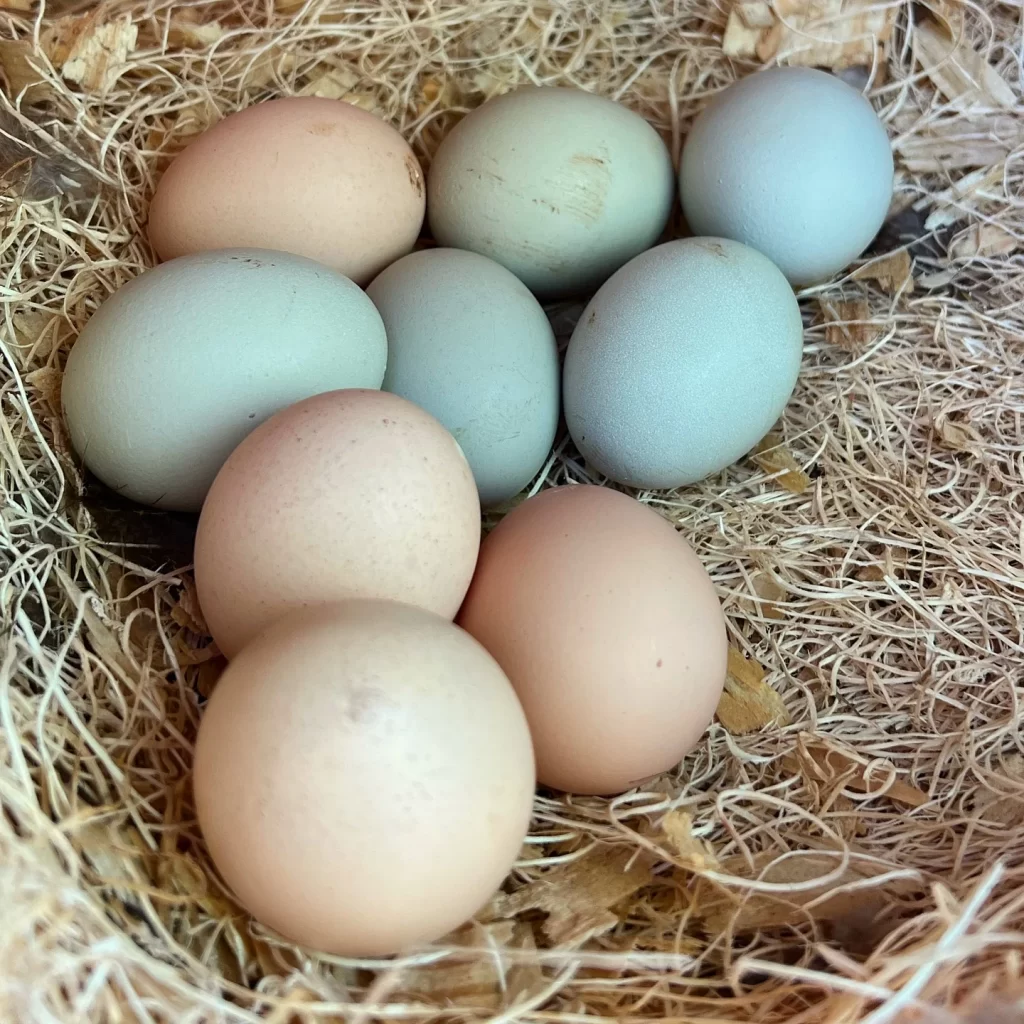Your cart is currently empty!
Day: April 21, 2025
-

Dirty backyard eggs are healthier than store-bought eggs

SOME FOOD FOR THOUGHT:
Many people don’t realize the little bit of mud (or poop) on fresh eggs is less harmful than the eggs they buy in the store.
Why is that? Eggs have a natural, invisible outer coating called the bloom. That bloom protects the shell’s pores and doesn’t let anything INTO the egg. Nothing can replicate this bloom. When you wash that egg, you wash off the protective bloom. This is why refrigeration after washing eggs is so important—it decreases the growth of pathogens that can make it through the shell with the bloom washed off.
Store-bought eggs are washed in a processing plant and sanitized from bacteria by dipping them into a solution that commonly contains sodium hypochlorite—a chlorine-based compound used as a disinfectant and bleaching agent, and also found in household cleaners, pool sanitizers, and water treatment. Another method used is pasteurization, which involves heating the egg to a certain temperature to kill pathogens.
When the protective bloom of the egg is washed off ANYTHING can get into your egg, INCLUDING the sanitizing solution, potentially contaminating the egg you’re about to eat.
The eggs in the store are also typically 30 days old before you can even buy them. Have they been properly refrigerated at the correct temp for that 30 days to make sure that they are safe to eat since the bloom has been washed off and dipped into a sanitizing solution?
So, when you see a local farmer selling eggs for $5 or $6 or even $8 dollars a dozen right now, support them, feed your family well, and know the differences before comparing price.
Buy and support local farmers.